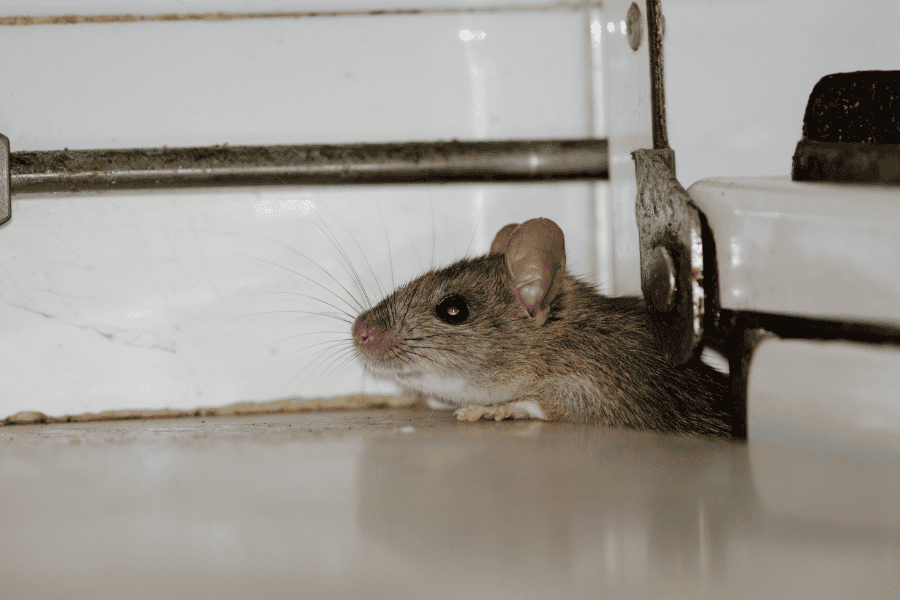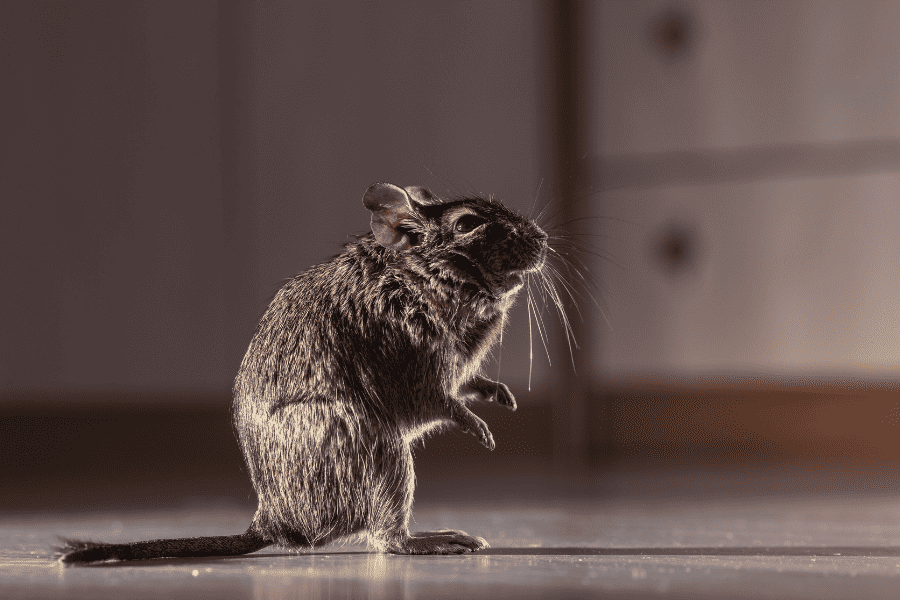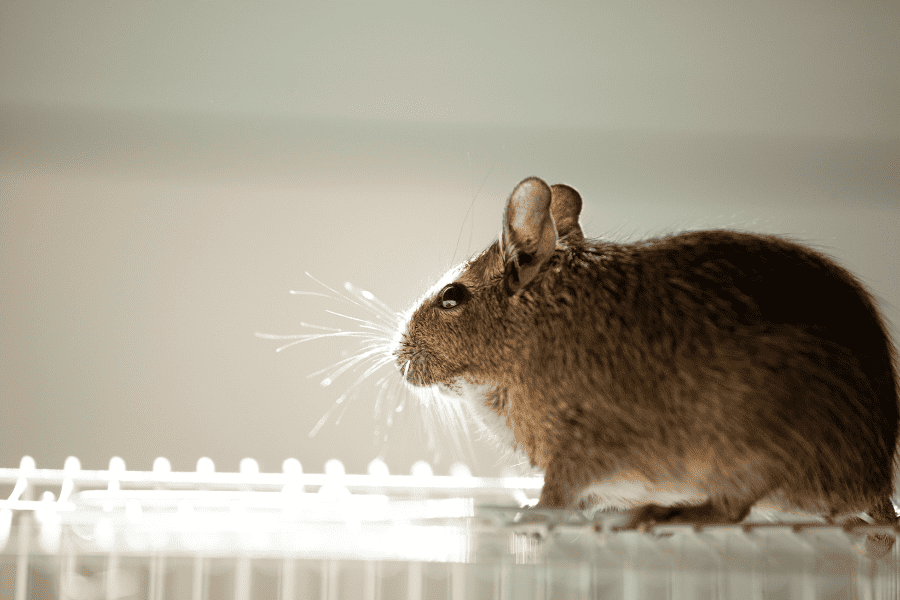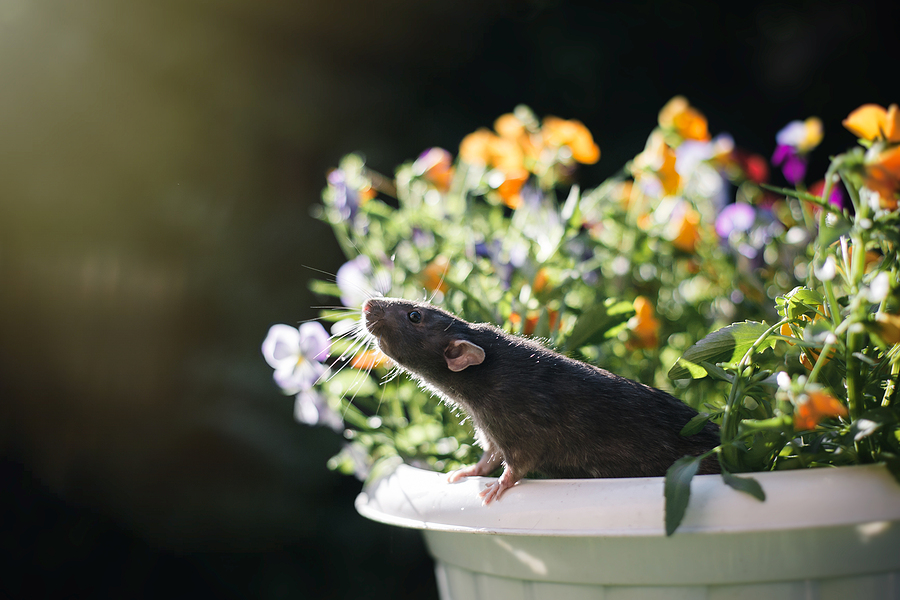READY TO GET STARTED?
REQUEST A FREE ESTIMATE
Fill out the form below or call (888) 466-7849 for a free, no-obligation estimate.

Rodents such as rats and mice are among the most common household pests in Georgia. They are notorious for invading homes, contaminating food, spreading diseases, and causing structural damage. Learning to identify the signs of rodents and taking proactive steps to prevent infestations can help protect your home and family. Below, we outline 12 practical rodent control tips, discuss the types of rodents common in Georgia, and explain why these pests invade homes.
Rodents enter homes searching for three basic needs: food, water, and shelter. Here’s why and how they manage to get inside:
Inspect your home for cracks, holes, and gaps, especially around doors, windows, and the foundation. Use steel wool, caulk, or hardware cloth to seal these openings, as rodents can gnaw through weaker materials.
Store all food, including pet food, in airtight containers. Clean up crumbs and spills promptly, and avoid leaving dirty dishes overnight.
Repair leaky faucets and pipes, and ensure your home’s drainage system works efficiently. Remove standing water both inside and outside your home.
Rodents love cluttered spaces where they can hide and nest. Keep storage areas tidy, dispose of unused items, and organize your garage or attic.
Vacuum floors, wipe down counters, and take out the trash daily. Rodents are less likely to settle in a home that’s free of food residue.
Gaps under doors are a common entry point for rodents. Installing door sweeps can prevent rats and mice from sneaking inside.
Traps are an effective do-it-yourself rodent control method for small infestations. Snap traps, glue traps, and live traps are widely available at hardware stores. Be sure to place traps near walls and areas with visible signs of rodents, such as gnaw marks or droppings.
Natural deterrents like peppermint oil, cayenne pepper, and ultrasonic devices can help repel rodents. However, these methods are often best used alongside more robust solutions.
Trim tree branches that touch your roof, as they serve as highways for roof rats. Remove piles of debris, and store firewood at least 20 feet from your home to eliminate potential nesting sites.
Stay vigilant for signs of rodents, including droppings, chewed wires, nests made of shredded materials, and unusual noises in walls or ceilings. Early detection is key to preventing a full-blown rodent infestation.
If you’re using traps or rodenticides, ensure they’re placed in areas inaccessible to children and pets. Many rodent control products can be hazardous if accidentally ingested.
For severe rodent problems, contacting a professional rodent exterminator or pest control company is the safest and most effective solution. These experts have the tools, experience, and knowledge to eliminate rodents and prevent future infestations. Consider pest control companies who specialize in green pest control methods to not only eliminate your pest issues but do so in a way that is safe for the environment, children, and pets.
Rodents are not just a nuisance; they pose serious health risks. They can spread diseases to humans and pets, including:
These diseases underscore the importance of addressing rodent problems promptly.
If you suspect an infestation, take the following steps immediately:
While do-it-yourself rodent control can be effective for minor infestations, professional pest control services offer significant advantages:
If you’re searching for “rodent control near me” in Georgia, consider reaching out to a trusted pest control company for a consultation.
Preventing a rodent infestation is always easier than eliminating one. Follow these tips, stay vigilant, and take action at the first sign of activity. Rodents may be small, but their ability to contaminate food, spread diseases, and damage property makes them a big threat.
Whether you need assistance with rat control, advice on how to get rid of rodents, or help with ongoing rodent problems, don’t hesitate to contact a professional pest control company. They can provide the expertise and peace of mind you deserve.
If you’re dealing with a rodent issue or want to take preventive measures, call a local pest control company today for a free consultation. Let the professionals handle the problem so you can enjoy a safe, rodent-free home.

House mice, roof rats, Norway rats, and other rodents seek our homes as a place for shelter to breed and search for an available food source to survive. These creatures are known to contaminate our environments and spread diseases such as plague, tularemia, and hantavirus. Rodents will often chew through insulation and electrical wiring, creating the risk of a fire. Placing do-it-yourself rodent-proofing measures throughout your home will protect your property and family from these pests.
Rats and mice seek out food, water, and shelter in homes, so it’s important to eliminate these factors from your property to avoid an infestation. Let’s review our DIY rodent-proofing tips for your Florida property:
If you’ve noticed signs of rodents or would like extra help with rodent-proofing, call a pest control company near you! Professionals will provide you with a free analysis and a recommended rodent control treatment and prevention plan!

Contamination, disease, and property destruction are all possible in your home if a rodent invades it! Rodents, including mice and rats, can be destructive creatures and once they’ve invaded your home, it can be difficult to remove them since they reproduce so quickly! One of the best ways to ensure these pests don’t enter your Florida home is taking the necessary precautions to avoid them in the first place. We break down the types of rodents to be cautious of and our best do-it-yourself rodent prevention tips to keep rodents out of your Sunrise home.
Rodents are attracted to food, water, and available shelter, so it’s crucial to eliminate these factors from your property to avoid a rat and mouse infestation. Check out our DIY rodent prevention tips for your Florida property:
If you suspect you have a rodent infestation or are interested in getting ahead of preventing them, call your local pest control company. Professionals will provide you with a thorough inspection, identification of the rodent, possible entry points, and a rodent control and prevention plan.

Rodents are a common pest Floridians will deal with. Rodents, like rats and mice, invade homes in search of water, shelter, and food to survive. Once rodents have infested your Punta Gorda home, it can be difficult to remove them as they will often reproduce quickly! It’s important for Punta Gorda homeowners to understand what attracts rodents to their homes and how to prevent them from infesting.
Dealing with rodents in your home is less than ideal. Luckily, there are do-it-yourself preventative measures you can place throughout your home to keep these pests from invading. Consider the following rodent control tips:
In summary, what attracts rodents to your Punta Gorda home is food, water, and shelter. If you suspect a rodent infestation, contact your local pest control company for help. These professionals will thoroughly inspect your home and safely remove any rodents that are found on your property.

Rodents such as mice, rats, and squirrels are overwintering pests, taking refuge inside your home during the colder months of the year. When spring arrives, these pests are already hiding in your attic, basement, crawlspace, garage, and even inside your walls. As the weather warms, they emerge for two reasons: searching for food and breeding season.
Rodents are dangerous to have inside your house for many reasons including:
Keeping rodents out of your home during any season of the year starts with prevention. Implement some of these rodent control tips this spring:
If you have a problem with rodents or any other household pests, contact your local pest control company for a thorough evaluation.
The Differences Between Bumblebees and Honeybees
When Are Termites Most Active?
Common Rats and Mice You Might See this Spring